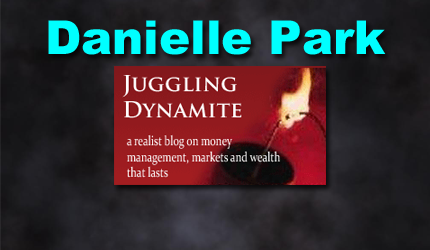May 5, 2025 | Cash-Strapped Investors Borrowing Against Illiquid Funds

During the highly unnatural, central bank-imposed years of ZIRP ‘zero interest rate policy’, investors were increasingly attracted to ‘alternative’ illiquid, opaque, securities that did not mark to market and promised future payouts premised on an endless supply of greater fools who would buy off existing holders. Some funds have been marketing theoretical return data, not based on actual price discovery of market values.
When rates started to rise and stock markets tanked in 2022, the usual dash for cash ensued, and many alternative funds froze payouts, including redemption requests from unit holders. The assumption was that risk appetite would resume, and liquidity events like mergers and public offerings would bail out existing unitholders. That’s not worked out well, and many bagholders are locked in with no imminent exit.
Frozen funds are incompatible with a real world that increasingly needs cash for daily payouts and obligations. So, cash-strapped investors have started borrowing against marked-to-make-believe funds. What could possibly go wrong? See, Big investors borrow against private equity holdings amid cash crunch:
Large pension funds and other big institutional investors have started to borrow against their private equity portfolios to raise cash after a slowdown in dealmaking activity and public offerings has dimmed their hopes of exiting trillions of dollars in ageing deals.
Investors have begun to turn to so-called net asset value loans in recent months to boost liquidity at a time when big chunks of their portfolio are locked up in private equity, venture capital and property assets that have returned very little cash, according to people involved in the deals.
The tactic, in which borrowers pledge their fund stakes as collateral for loans, is mostly used by private equity groups to unearth cash to fund acquisitions or dividends. However, it is being adopted by investors in buyout funds as a way to generate cash without fire-selling assets at unfavourable prices.
Investors in private equity are short on cash because distributions paid by their funds over the past three years are about half of historical averages, causing the stockpile of unsold private equity deals to hit a record $3tn last year. There is now a $400bn-to-$500bn shortfall of cash that should have been returned to investors, according to Cambridge Associates.
At the start of the year, dealmakers were forecasting a rebound in M&A and public offerings that would cut into the stockpile. Donald Trump’s trade war, however, has frozen activity and private equity executives are now predicting IPOs could be on pause through this year.
Leverage on leverage on leverage makes all asset markets more vulnerable.
STAY INFORMED! Receive our Weekly Recap of thought provoking articles, podcasts, and radio delivered to your inbox for FREE! Sign up here for the HoweStreet.com Weekly Recap.
Danielle Park May 5th, 2025
Posted In: Juggling Dynamite











